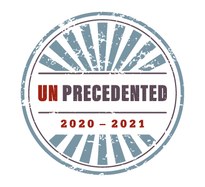Speculative fiction has recently marked a turn in American literature to imagine not just the past of "unprecedented" climate crises, but also their future. It has been well established that speculative fiction can assist societies in imagining the future of climate crises. However, it remains to be discussed what the limits of these imaginative possibilities are. Further, what is gained and lost by referring to major climate events as "unprecedented"? Mindful of the limits of speculative fiction's potential to imagine the futures of climate change, this webinar focuses on how speculative fiction might nonetheless help make the "unprecedented" feel apprehensible for readers.
Panelists include:
Heather Houser, Associate Professor of English, The University of Texas at Austin
Houser is the author of Ecosickness in Contemporary U. S. Fiction: Environment and Affect (Columbia Univeristy Press, 2014) and Infowhelm: Environmental Art and Literature in an Age of Data (Columbia University Press, 2020).
Stephanie LeMenager, Moore Endowed Professor of English, University of Oregon
LeMenager is the author of Living Oil: Petroleum Culture in the American Century (Oxford University Press, 2014) and co-editor, with Shane Hall and Stephen Siperstein, of Teaching Climate Change in the Humanities (Routledge, 2016).
Claire Colebrook, Edwin Erle Sparks Professor of English, Philosophy, and Women's, Gender, and Sexuality Studies, Penn State
Colebrook serves as co-editor, with Tom Cohen, of the book series Critical Climate Change for Open Humanities Press and has authored two volumes in the series, including The Death of the Posthuman (2014) and Sex After Life (2014).
After registering, you will receive a confirmation email containing information about joining the webinar.


Occurrences
-
Friday, January 22, 2021, noon–1:00 p.m.